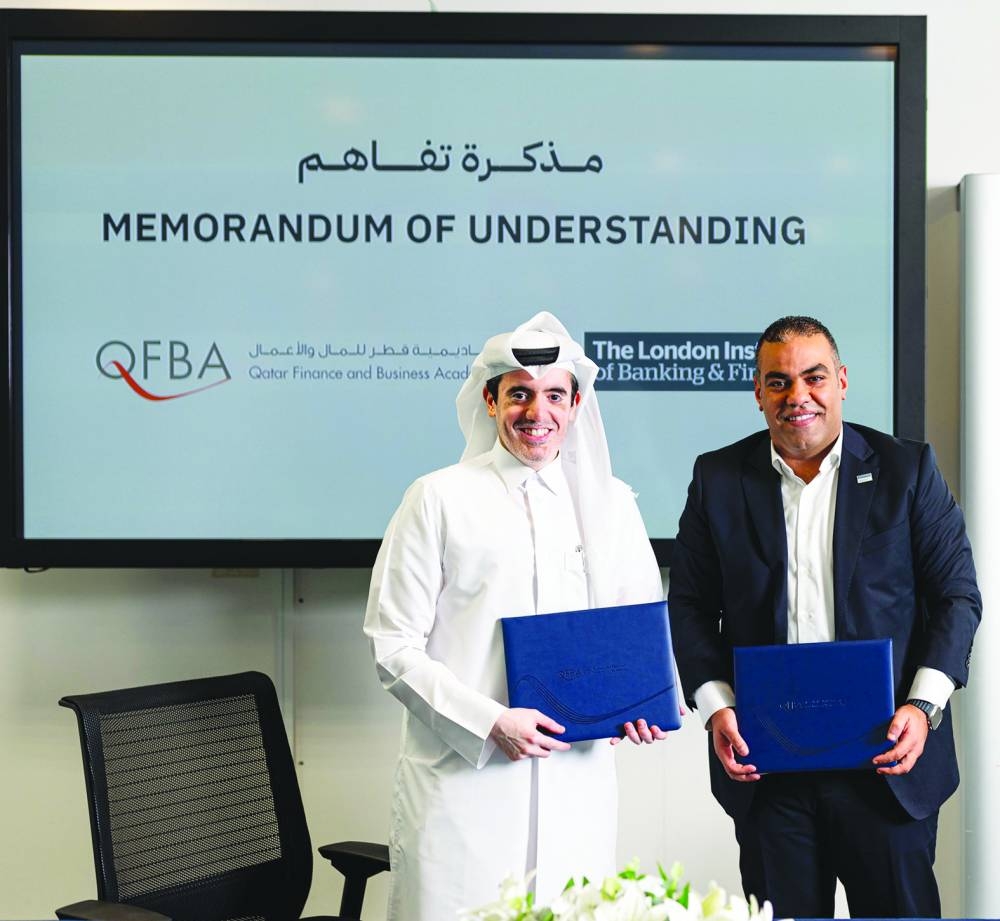The Qatar Finance and Business Academy (QFBA) has signed a memorandum of understanding (MoU) with The London Institute of Banking and Finance (LIBF) Mena.
The MoU seeks to facilitate and strengthen collaborative efforts, as well as enable the exchange of knowledge and expertise between the two parties in the areas of education, training, and professional development within the financial and banking services sector.
The MoU was signed by Majid al-Khulaifi, director of Training & Development at QFBA, and Kareem Refaay, managing director, at LIBF Mena.
Al-Khulaifi emphasised the MoU’s alignment with the academy’s strategic objectives to enhance collaboration and establish partnerships with esteemed institutes and institutions at local, regional, and international levels.
This effort aims to enhance the skills and expertise of Qatari professionals in the financial and banking services sector. It seeks to achieve this by offering specialised training programmes and high-quality professional certifications that cater to the demands of this industry.
“The collaboration between the two entities will be enhanced by leveraging the knowledge, skills, and resources of LIBF Mena in the realm of training and professional advancement. By effectively utilising these assets, the Academy aims to align with its objectives and vision, while bolstering the professional competencies of its students,” al-Khulaifi said.
Refaay said: “Our shared objectives include promoting selected LIBF Mena programmes, tailoring bespoke offerings for Qatar's financial industry, delivering community-centric national programmes, and exchanging expertise. This partnership underscores our commitment to advancing education and industry excellence in the region.”
Under the MoU, both parties agreed to strengthen cooperation to provide vocational education programmes, as well as national and customised programmes that would meet the needs of the community and institutions involved with financial services in Qatar, and to exchange experiences and information between the two parties when appropriate.
This is in addition to identifying and investigating any other areas of mutual interest where collaboration may be extended and developed for the benefit of both parties.

Majid al-Khulaifi, director of Training & Development at QFBA, and Kareem Refaay, managing director, at LIBF Mena, during the MoU signing.
